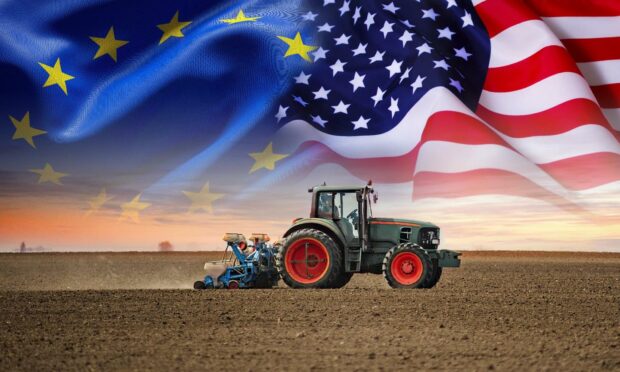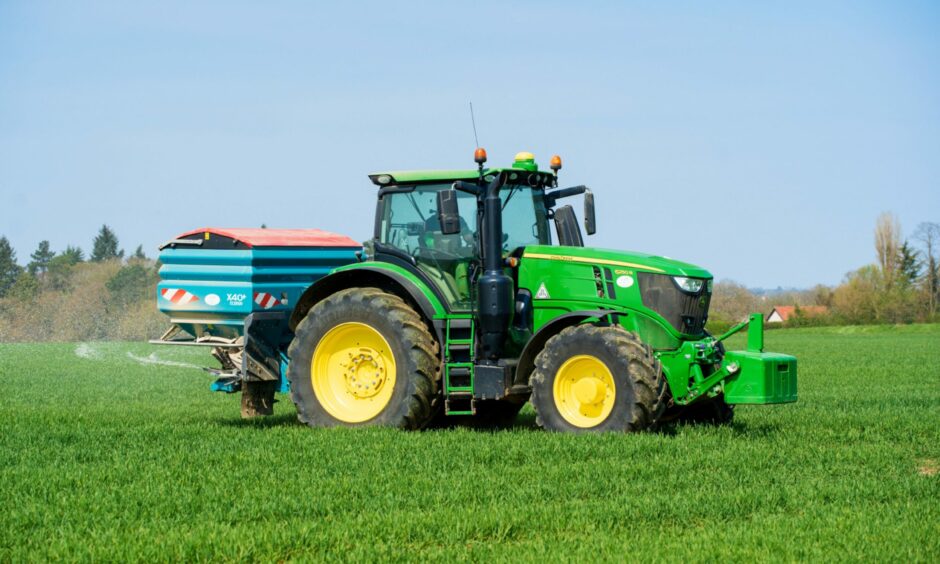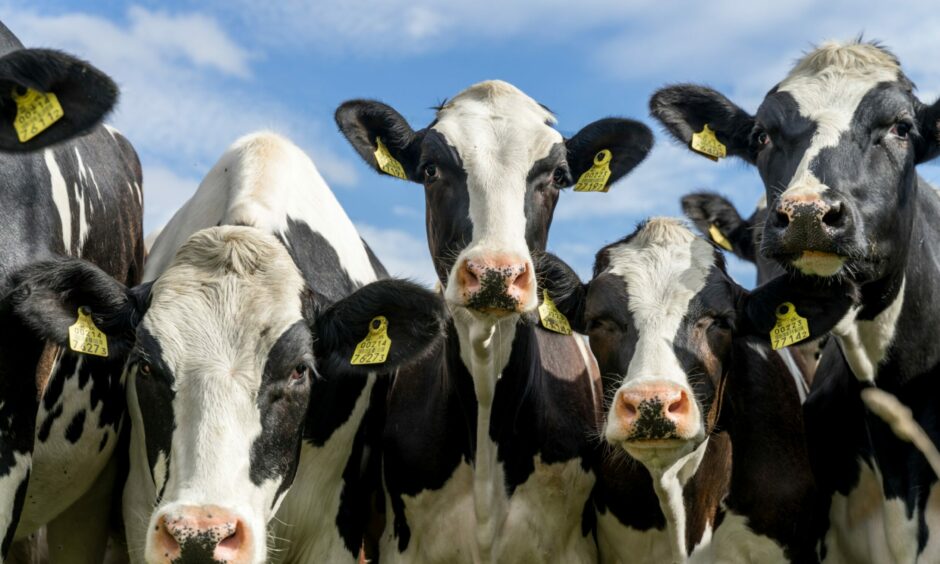Over the last year the farming industry has been bombarded with media headlines blaming cows for killing the planet.
And yet agriculture barely got a mention at COP26 with the focus being on the pledges to phase down coal, end deforestation and cut methane emissions by 2030
Although COP26 struggled to achieve its main goal of limiting the temperature rise to 1.5 degrees the conference demonstrated once again that climate change is mainstream with more than 100,000 people marching to Glasgow’s George Square urging politicians to stop the Blah, Blah and start delivering on their promises.
When it comes to delivering a more sustainable agricultural system it is becoming apparent there are competing visions between the two agriculture superpowers – the US and the EU – on how to achieve that goal.
In June 2020, the EU side set out its road map to cut emissions and increase biodiversity in European farming systems in the Farm to Fork Strategy.
It is the most radical shift in EU farm policy since Farm Commissioner Franz Fischler abolished headage payments some 20 years ago.
It sets targets for farmers to cut pesticides use by 50%, fertilisers by 20%, and antibiotics by 50% – all by 2030.
In addition, the EU has set a target of 25% of land being farmed organically by 2030 and it wants to encourage consumers to switch away from red meat to plant-based diets.
The EU also intends to persuade its trading partners to adopt its sustainability standards if they wish to continue trading into the EU market of 450 million consumers.
European Commission Vice President Frans Timmermans, who is championing the flagship policy, recently stated that success should no longer be counted by the number of waggons of food we produce, and that productivity growth must be sacrificed for sustainability.
Since the strategy was unveiled there has been a fierce debate about the impact this will have on EU farmers.
Farm leaders at Copa Cogeca have called on the European Commission to conduct a full impact study of the proposals as they fear they will lead to increased costs, loss of competitiveness and cheaper imports flooding into their markets.
So far, the European Commission has refused to carry one out.
However, Sonny Perdue – the US Agriculture Secretary at the time – was so concerned by the EU proposals he asked his economists at the US Department of Agriculture to study them.
They concluded that food production would drop by 11% and prices would shoot up by 89% if all countries adopted the EU model.
Two further independent studies concluded the EU proposals risked a significant reduction in EU food production and cuts to farm incomes.
At a recent seminar I chaired, Doug McKalip, Senior Adviser to the US Secretary of Agriculture, made it clear that the US did not believe in sacrificing productivity to reach a sustainability goal.
The US believes that the right way to both conserve the planet’s resources and still feed a rising world population is to invest in new innovative technologies such as biotech, artificial intelligence and precision farming that will allow farmers to increase yields and cut carbon emitting inputs at the same time.
In what is seen as a response to Farm to Fork, the US are building a coalition of similarly minded countries that will focus on transitioning to more sustainable food systems through agriculture productivity growth.
Launching the coalition Tom Vilsack, US Secretary of Agriculture, said: “There are a number of nations who believe strongly that we can’t sacrifice productivity in order to reach a sustainability goal.”
He went on to say: “There are two different pathways and I think the US and many other countries are going down one path and the EU is going a down another.”
What has this to do with Scottish farming you may ask?
Well here in Scotland we are right in the middle of choosing which path Scottish agriculture should take in the transition to a more sustainable model.
It is clear where the farmer-led groups stand on this.
The key themes running through the group’s recommendations are that they are strongly in favour of improving on farm productivity, producing more with less inputs, using precision farming techniques, using data to measure performance and new innovative technologies.
They were strongly opposed to cuts in Scottish cow numbers or farm output.
Unfortunately, the great unknown in this debate is where our Scottish Government stands on any of these issues.
To date all the farm minister Mairi Gougeon has revealed is that over half of future payments will have conditionality attached to them and by 2032 Scottish farming must cut its emissions by 24%.
She has also made clear her opposition to farmers using new genetic breeding techniques.
In her speech at both the NFU Scotland conference and the P&J business breakfast she also emphasised Scotland would stay aligned with new EU policies as her government wanted to be independent and back in Europe.
With the First Minister once again promising a referendum in 2023 surely it is time the Minister spelled out clearly what alignment with these new EU policies will mean for Scottish farmers.
- George Lyon is a former MEP and a former president of NFU Scotland. He is a senior consultant for Hume Brophy.



